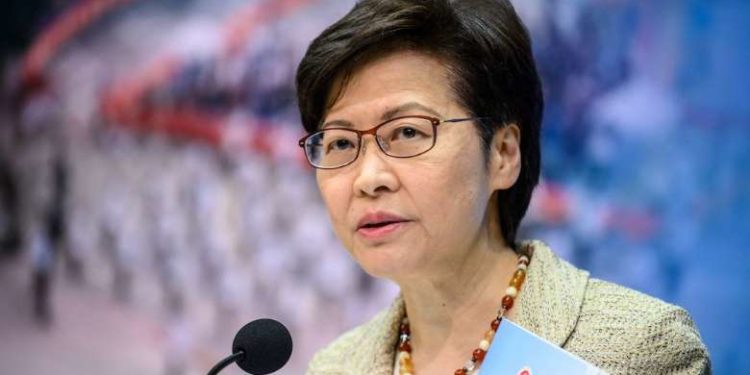The Chinese Communist Party (CCP) has consolidated its grip on Hong Kong by approving an overhaul of its quasi-democracy to ensure only “patriots” get to govern the Chinese territory.
Resolutions that drastically curb democratic representation were endorsed unopposed by the National People’s Congress Standing Committee on March 30, while the next election, already delayed because of the pandemic, was rescheduled for December.
That follows last June’s passage of the national security law, widely seen by critics as a means of crushing dissent and effectively ending any vestiges of the promises guaranteeing self-rule for 50 years made before Hong Kong’s 1997 handover from Britain to China.
CPP mouthpiece Xinhua said under Chinese laws governing future polls the number of directly elected representatives in Hong Kong will fall from 35 to 20 and the size of the legislature will increase to 90 seats from 70.
An election committee responsible for selecting the chief executive will have its numbers increased to 1,500 members from 1,200.
The 117 community-level district councilors in the election committee will be scrapped along with the six district council seats in the Legislative Council (LegCo).
District councils were Hong Kong’s only fully democratic institution. In the 2019 elections, almost 90 percent of the 452 district seats were won by pro-democrats, to Beijing’s disbelief.
Importantly, a powerful new vetting committee will ensure candidates picked for public office are loyal to Beijing, a quality demanded by the CPP in the wake of the protests in 2019 when some activists demanded independence for the financial hub. The committee will be backed by national security authorities.
Xia Baolong, head of the Hong Kong and Macao Affairs Office of the State Council, has said people who violate the national security law, or challenge the leadership of the ruling CCP, are not patriots.
The Democratic Party said it was “very strange” for an administrative branch to be given the power to decide who can or cannot stand for office in a legislative election.
However, Chief Executive Carrie Lam, a Catholic, said the new candidate eligibility review committee will consist of a small group of top government officials but declined to say who they were.
She sought to allay fears of pro-Beijing favoritism, saying the committee would not arbitrarily decide whether a candidate fulfills loyalty requirements by swearing allegiance to the Hong Kong Special Administrative Region or in upholding the Basic Law. “These sort of worries are exaggerated,” she said.
Soon after, LegCo president Andrew Leung told journalists that Hong Kong’s legislative elections would be postponed again, to December, allowing time for Beijing’s reforms to be introduced.
“Because the government has said it will submit an amendment bill to the LegCo in April, I have decided to add additional LegCo sessions in mid-April for the first reading, so the bills committee can do its work at full speed,” Leung said.
“The sixth Legislative Council will extend until the end of the year. During this time — apart from processing relevant bills and amendments — there are many other economic, social and budgeting items that need to be debated and voted on.”
Credit: Source link




